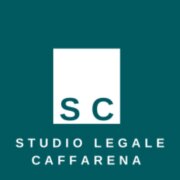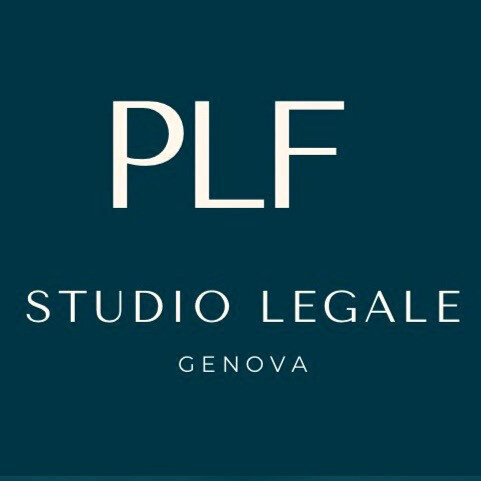Best Collaborative Law Lawyers in Genoa
Share your needs with us, get contacted by law firms.
Free. Takes 2 min.
Free Guide to Hiring a Family Lawyer
List of the best lawyers in Genoa, Italy
About Collaborative Law in Genoa, Italy
Collaborative Law is an alternative dispute resolution (ADR) method designed to help parties resolve conflicts without resorting to lengthy and adversarial court proceedings. In Genoa, Italy, this approach is most commonly used for family law matters such as separation, divorce, and child custody, but it is increasingly being applied to other civil disputes. Collaborative Law emphasizes cooperation and problem-solving, allowing both parties-supported by their lawyers and, if necessary, other professionals-to reach a mutually satisfactory agreement in a confidential and respectful environment.
Why You May Need a Lawyer
There are various circumstances in which individuals may seek the services of a Collaborative Law lawyer in Genoa:
- Family Disputes: Issues such as divorce, child custody, and division of property often benefit from a collaborative approach to avoid emotional and financial costs associated with litigation.
- Business Conflicts: Business partners may choose collaboration to settle disagreements, ensuring the ongoing viability of the business relationship.
- Inheritance Matters: Heirs wishing to resolve succession or inheritance matters amicably often turn to collaborative processes to avoid family conflict.
- Neighbourhood Disputes: Collaborative Law can help neighbours settle disagreements concerning property boundaries, noise, or shared responsibilities.
- Long-Term Relationships: Cohabitants or unmarried couples can formalize agreements or resolve disputes in a non-adversarial way.
A specialized lawyer facilitates negotiation, ensures legal validity, and protects your interests throughout the process.
Local Laws Overview
In Genoa, Collaborative Law operates within the framework of Italian civil legislation, especially regarding family law (Codice Civile) and the recent regulatory push for alternative dispute resolution. Law 162/2014 introduced important reforms to promote negotiated separation and divorce (so-called “negoziazione assistita”) handled with the support of lawyers. Collaborative Law is recognized as a voluntary process where each party retains a lawyer specifically trained in collaborative procedures. Any agreement reached must comply with Italian law and, in family matters, be validated by the public prosecutor (Pubblico Ministero) or a judge to ensure the protection of minors and public interests. Confidentiality and good faith are cornerstones of the process, and all involved commit in writing not to pursue litigation while the collaborative process is ongoing.
Frequently Asked Questions
What is Collaborative Law?
Collaborative Law is a legal process where parties work together with their lawyers and sometimes other professionals to resolve disputes without going to court.
How is Collaborative Law different from mediation?
While both approaches aim to avoid litigation, mediation involves a neutral third party facilitating discussion, whereas Collaborative Law involves each party having their own trained lawyer and possibly other experts, all committed to cooperation.
What types of cases can use Collaborative Law in Genoa?
Primarily family disputes such as separation, divorce, and custody, but also civil, commercial, and inheritance matters.
Are Collaborative Law agreements legally binding?
Yes, agreements reached are formalized in writing and, in certain family law cases, must be approved by judicial authorities or public prosecutor to become fully enforceable.
What if the collaborative process fails?
If no agreement is reached, the collaborative process ends and parties may proceed to court; however, lawyers involved in the collaborative process cannot represent the clients in subsequent litigation, preserving confidentiality and integrity.
How long does the process usually take?
The duration varies depending on the complexity of the issues, but it usually takes a few months-often much quicker than traditional litigation.
How much does Collaborative Law cost?
Costs can vary depending on the professionals involved and the complexity of the case, but collaborative processes typically cost less than adversarial court proceedings due to their efficiency.
Do both parties need to agree to Collaborative Law?
Yes, participation is voluntary and both parties must commit in writing to the process and to not pursuing litigation while it is ongoing.
Is the information shared during sessions confidential?
Yes, confidentiality is fundamental. What is discussed and shared in the collaborative process cannot be used in future court proceedings.
How can I find a lawyer trained in Collaborative Law in Genoa?
You can seek lawyers who are members of local or national collaborative law associations, or request referrals from the local bar association (Ordine degli Avvocati di Genova).
Additional Resources
For those seeking more information or direct support in Genoa, the following may be useful:
- Ordine degli Avvocati di Genova: The local Bar Association can provide lists of lawyers with training in collaborative practices.
- Italian Association of Collaborative Lawyers (AIADC): A network of professionals specialized in collaborative law throughout Italy, including Genoa.
- Family Mediation Centres: Some local family mediation services also offer collaborative law information sessions.
- Civil Courts of Genoa: For information on the legal recognition and approval of agreements in collaborative processes.
- Municipal Legal Advice Services: Some municipalities offer initial free legal consultations for residents.
Next Steps
If you believe Collaborative Law might be right for your situation in Genoa, here’s how to proceed:
- Research and identify lawyers in Genoa with specific training in Collaborative Law.
- Schedule a consultation to discuss your case, the collaborative process, and expected outcomes.
- Ensure all parties understand and voluntarily agree to participate.
- Formally commit to the process with your chosen lawyer(s) by signing a participation agreement.
- Attend joint sessions with your lawyers, and, if appropriate, other professionals (e.g., financial advisors, child psychologists).
- Work together towards a mutually agreeable solution, formalize the agreement, and, if necessary, have it validated by the relevant authorities.
Starting with a lawyer experienced in Collaborative Law will provide you with the guidance, structure, and support you need for a smoother, more cooperative resolution. Remember to ask questions and ensure you are comfortable with the process and your legal representation.
Lawzana helps you find the best lawyers and law firms in Genoa through a curated and pre-screened list of qualified legal professionals. Our platform offers rankings and detailed profiles of attorneys and law firms, allowing you to compare based on practice areas, including Collaborative Law, experience, and client feedback.
Each profile includes a description of the firm's areas of practice, client reviews, team members and partners, year of establishment, spoken languages, office locations, contact information, social media presence, and any published articles or resources. Most firms on our platform speak English and are experienced in both local and international legal matters.
Get a quote from top-rated law firms in Genoa, Italy — quickly, securely, and without unnecessary hassle.
Disclaimer:
The information provided on this page is for general informational purposes only and does not constitute legal advice. While we strive to ensure the accuracy and relevance of the content, legal information may change over time, and interpretations of the law can vary. You should always consult with a qualified legal professional for advice specific to your situation.
We disclaim all liability for actions taken or not taken based on the content of this page. If you believe any information is incorrect or outdated, please contact us, and we will review and update it where appropriate.










